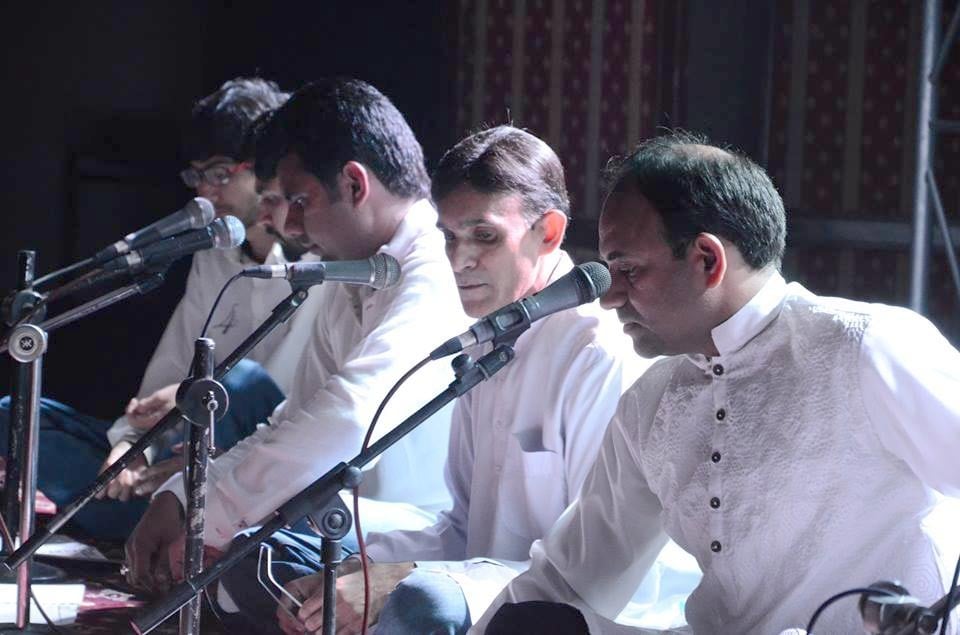
Pakistan’s music industry stands to benefit from the dynamic Middle Eastern music scene

During the last three years or so, a group of vocalists and musicians has appeared on the scene and they have been performing not only in the country but across the Middle East. It is generally assumed that there is scant music or musical expression and activity in the Muslim world but the hubs of music in the Middle East have been Egypt, Morocco and Turkey. In these places, there are so many festivals that the promotion of music in the western world begins to pale in comparison.
For people in Pakistan, the general perception holds that musical activity and expression is limited or not encouraged and that it is something that is western or Indian. But an objective overview totally belies this initial perception.
The cultures of these societies are often seen through the lens of religion, based on a theological underpinning, with an accruing analysis which is too narrow on which to judge the activities of a society. With a rich heritage and diversity, these societies not in thrall to theocratic regimes have a thriving music culture, as indeed of all art forms, and are regular hosts to musicians and artistes from across the world.
That a very big festival is organised in Fez, Morocco where some Pakistan artistes like Nusrat Fateh Ali Khan and Ustad Ghulam Hassan Shaggan have performed is a known fact. But we don’t know if such festivals are held all across the Middle East and under various themes and labels.
In the last three years or so, Marifat Sufi Band, a group of musicians from Pakistan, has performed at various music venues and earned praise. This band comprises Muhammed Zafar Iqbal, Nazir Zahid, Yusaf Lawrence, Shakeel Safdar Javed and Allah Ditta.
A couple of years ago they had performed at the Sixth International Samaa Festival organised by the Egyptian government, and last year they performed extensively again in Egypt at a number of venues in Cairo like the Eighth Round of International Samaa Festival for Spiritual Music and Chanting.
Then from the impressive opening ceremony at the Salah al-Din Citadel of Cairo to the Talaat Harb Cultural Centre, the Media City, Hangar Open Area Theatre, Egyptian Opera House, El Moez Street, Khan el-Khalili Bazaar, the Pakistan House, finally winding up their tour by performing again at the Salah al-Din Citadel for the closing ceremony. They were interviewed and asked to perform at various local television channels. Then they were invited by the Pakistan Embassy in collaboration with the Fondation Esprit de Fes and Ministry of Culture, Morocco. The same year and they performed at various venues -- "Joudour" at Dar Souiri, Essaouira, Ministry of Cultural Hall, Safi, Qasiria Compound in Marrakech, public stage at Essaouira. Bahanini Hall of the Ministry of Culture, Rabat, Theatre Mohamed Said Afifi at El Jadida and Sacred Music Festival at Fez.
They were invited to perform at the Arab Music Institute and Qubbat Al Ghori mainly for the Pakistani community in Cairo the same year. The group has also performed in Turkey and Zafar Iqbal was invited to take part in a seminar of music by the Centre for Advanced studies in Music at the Istanbul University. He also spoke on other forums on the music of Pakistan.
In the Arab societies, as indeed in ours, there is a conflict and tension between the modernists who are more given to accepting the changes in the world both in intonation and the introduction of instruments that produce a computerised sound and those who prefer the traditional melodies sung or played in the traditional manner with traditional instrumentation. But, despite the insistence of modernists, there is a distinct tone or feel that originates from that culture and region. Similarly, the traditionalists too are being forced to change, perhaps unwittingly so, because of the dynamic environment.
This makes for a fascinating creative struggle for the soul of Arabic music and also shows the way forward for these societies not only in music but also in their social existence. Additionally, it is also instructive how these traditional societies are meeting with challenges of modernity. These are also the set of problems that we are embroiled in all the time.
There’s a greater need for exchange between the societies of the Middle East and Pakistan because, at the moment, the exposure (if any) is only through religious ritual and politics which is not wholesome. The exchange of poets, painters, film makers and musicians will also expose us to our shared cultural history as well which we have always studied in unhealthy isolation. Dubai is one such commercial centre, now evolving into a cultural hub as well.
It is gradually shifting from being a stage for international cultural players to one that does not only offer a platform but has its own culture to offer as well. It will scale down the unnecessary expectation of a globalised cultural product to one that is more grounded in the unique culture and history of the place.